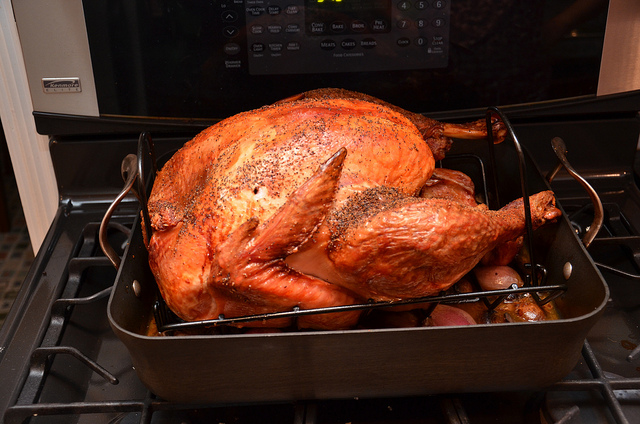Thanksgiving might be a time for gratitude and spending time with loved ones, but visiting family during holidays can often be stressful for many people. While some might look forward to making more cherished memories with their close circle, those same gatherings may be a source of dread for others, Yahoo! Life reported.
In fact, more than half of Canadians find holiday seasons to have a negative impact on their mental health, according to a Canadian Mental Health Association (CMHA) survey. Moreover, 52 percent of those reported they have increased feelings of anxiety and depression.
There are many factors that play into this, including financial stress, isolation, worries about hosting the perfect get-together, political differences, and unease around alcohol during that time. Still, there seems to be a universal through line for many: Family dynamics. As families plan to get together for Thanksgiving, these patterns are just as prevalent.
How can I have a conversation and not ruin family dinner?
If you’re heading into a family situation you expect may be testy, New Brunswick-based social worker Marie Michelle Mekary suggested going in well-informed.
“I always tell clients, try to know who’s going to be at the supper,” Mekary previously told Yahoo Canada.
And not only that, but Mekary suggested being prepped on your boundaries, “I always work in limits and boundaries with clients. If they’re not comfortable with a topic, I practice with them in-session how to say, ‘Hey, can we change the topic? I’m not comfortable with this.” Mekary said. “The minute you’re not capable of recognizing how to set limits and boundaries, that will avoid having conversations end with an argument.”
What can I do to avoid certain topics at family events?
When it comes to avoiding certain topics altogether, whether it’s your recent breakup or which political party is currently in power, both Mekary and Assuncao advised directing conversations away from a subject that might land you in hot water. “It might be very obvious distractions, but I would use stuff like, ‘So what else is happening in your life? How’s work? How are the kids? Assuncao said.
If you’re in a big group of people, Assuncao advised not responding if someone drops an etiquette bomb or says something offensive. Not only can it be essential for your own mental health to not engage, but it may also cause the person to have to sit in their comment and realize it isn’t a shared point of view.
“Give yourself permission to not have to be the person that’s correcting the thing that someone else is doing,” Assuncao said. “You don’t have to be on top of monitoring everybody’s beliefs; they’re allowed to have them and we’re not allowed to not get mad about it.”
How can I keep calm when debating with that third uncle on my dad’s side?
For the enviable moment someone in the family gets really heated, Assuncao said perception is key. “A good reminder is none of it is personal to you. Just keep in mind this is a reflection of what’s happening for this person, it’s not a reflection of your relationship or your value or the value of your opinions.”
Utilizing coping mechanisms like breathing exercises can also be helpful, and if you need to remove yourself from the situation — do so. “Tell them, “I’m just going to the washroom, I’ll be back in two or three minutes,” Mekary advised. “So, It’s not really avoiding the situation it’s a coping mechanism in order to self-regulate and be able to keep your environment calm.”


